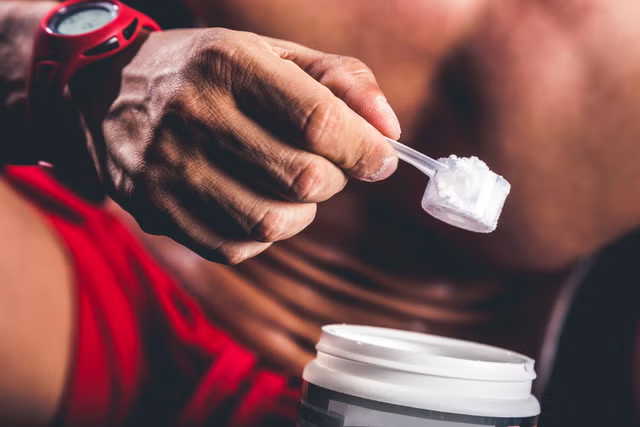I’ve used creatine for five years to build strength and muscle – here’s why I recommend it

f I were to recommend one supplement that would benefit the most people, it would be creatine. Paired with progressive strength training plans, using it consistently over the last five years has supported me in my bid to build strength and muscle while helping me feel more energised in my morning workouts. Add to that the fact that it’s well-researched and fairly affordable, and you have yourself a winning formula.
I started feeling the benefits after just a few weeks of using it – I felt stronger, more powerful, and my training quality in the gym amped up thanks to improved recovery between sets. In the five years since I’ve hit all-time PBs across the big three lifts and seen my scores improve across most CrossFit (my go-to training style) benchmark workouts.
Of course, creatine is only a small part of this puzzle: consistent and progressive training, an appropriate diet and ample recovery are the cornerstones of improved performance. But I believe this supplement has acted as a catalyst as I gradually climb my way towards various fitness goals.
What is creatine?
Creatine is one of the most popular supplements on the market. And with the potential to improve athletic performance, it’s easy to see why. But what actually is it?
“Creatine is a compound naturally synthesised in the body from the amino acids glycine, methionine and arginine,” explains Dr Eric Helms, a senior research fellow and expert in applied sports science at the Sports Performance Institute New Zealand and part of the Optimum Insiders group.
“It plays a key role in the phosphocreatine energy system, which supports the first 10–20 seconds of high-intensity activity. Supplementing with creatine monohydrate aids your ability to perform lifting and power-based activities, reliably resulting in increased muscular performance and mass if used chronically.”
Creatine supplementation can increase your phosphocreatine stores. “Inside the body, creatine is stored primarily in muscle as phosphocreatine, where it acts as a rapidly available energy reserve to help regenerate ATP (adenosine triphosphate), the ‘energy currency’ used during short, intense bursts of exercise,” adds Dr Crionna Tobin, head of science and education at Optimum Nutrition.
Read more: The best supplements to take, according to experts

What are the benefits of creatine?
“The primary benefit of creatine is an enhanced ability to perform repeated bouts of high-intensity, short-duration efforts,” says Helms. “During intense exercise like lifting or sprinting, ATP is used up very quickly. Having more phosphocreatine available allows you to replenish that ATP faster, which means you can sustain a high power output for longer.”







